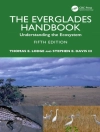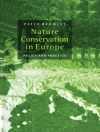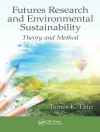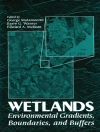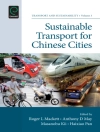Synthetic plastic offers a wide range of utilities because of its physico-chemical properties, thus the demand for its commercial availability and generation of waste is inevitable. Although the scientists have proved over the years that plastics can be efficiently biodegraded by different potential microorganisms, this sustainable green technology is still in the cocoon phase and overlooked by the industry and government as well. Therefore, this book will showcase the cutting-edge microbial tools to mitigate the plastic waste sustainably in consideration of latest technologies and recent strategic advancements besides discussing the global plastic production and their impacts on environment. It will also provide the present status and future perspectives of the environmental clean-up technologies. Moreover, it is an effort to ascertain the potential areas for large-scale biodegradation or pilot scale or start-up ventures in the field of plastic remediation strategy.
Mục lục
Giới thiệu về tác giả
Dr. Ravindra Soni is an Assistant Professor at the Department of Agricultural Microbiology, I.G.K.V., Raipur, India. He has more than 13 years of teaching and research experience in the field of agricultural microbiology, microbial ecology, molecular biology and biotechnology, especially with reference to higher altitudes. He was the recipient of prestigious DST-Young Scientist award, DS Kothari Post Doctoral Fellowship, INSA Summer Fellowship, SPR Young Scientist Award-2022 from Society for Plant Research, India, and Excellence Research Fellow Award: 2023 from Association of Plant Science Researchers (APSR), Dehradun, Uttarakhand. He has contributed to chapters in books and published more than 100 research articles in international journals and edited books.
Dr. Prasenjit Debbarma is an Assistant Professor at the Department of Botany, Iswar Chandra Vidyasagar College, affiliated to Tripura University (Central University), Belonia, South Tripura, India. He has 7 years of research experience and more than 3 years of teaching experience in the field of agricultural microbiology, microbial ecology, environmental microbiology, biotechnology and metagenomics. He was the recipient of National Fellowship for Higher Education from UGC and Governor’s Research Award from Governor of Uttarakhand, India. Dr. Debbarma has published several research papers, reviews, book chapters, popular articles and abstracts in journals of National and International repute. He also has one patent in his credit.
Dr. Deep Chandra Suyal is an Assistant Professor at the Department of Microbiology, Akal College of Basic Sciences, Eternal University Baru Sahib, Sirmour, Himachal Pradesh, India. He has been actively engaged in research for 10 years and has experience in the fields of agricultural microbiology, molecular biology & biotechnology and metagenomics. He is currently investigating the genomics and proteomics of cold-adapted microorganisms. He has published books and numerous articles in respected international journals and has three patents in his credit.
Dr. Reeta Goel is a Distinguished Professor at the Institute of Applied Sciences & Humanities, GLA University, Mathura, Uttar Pradesh, India. She was the Head of Microbiology Department, G. B. Pant University of Agriculture & Technology, Pantnagar, Uttarakhand. Prof. Goel has also served as a visiting scientist at various institutes in the USA and has more than 35 years of teaching and research experience in the area of plant–microbe interactions, microbial ecology, biodegradation and metagenomics, especially with reference to higher altitudes. Moreover, she has worked extensively in the field of genomics and proteomics of cold-adapted microorganisms. She has published over 100 research articles, book chapters and edited books. She has six patents in her credit, including one U.S. Patent, and received numerous awards for her contributions to science and technology.




